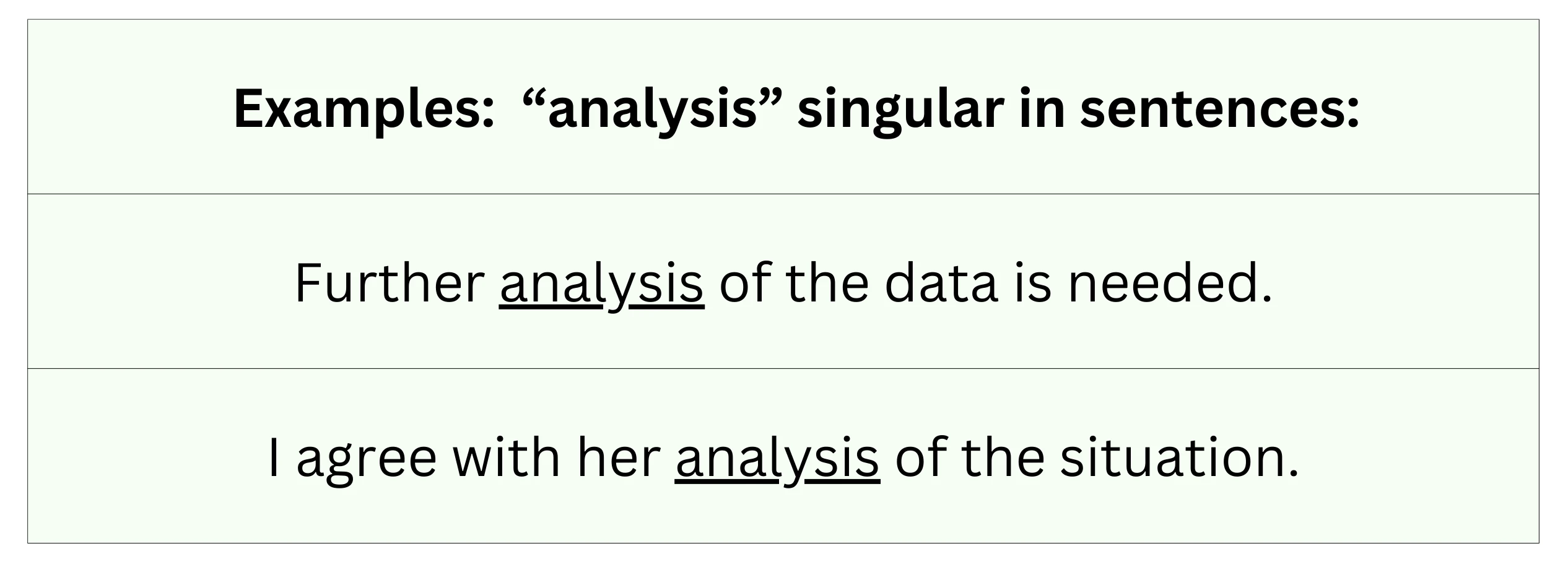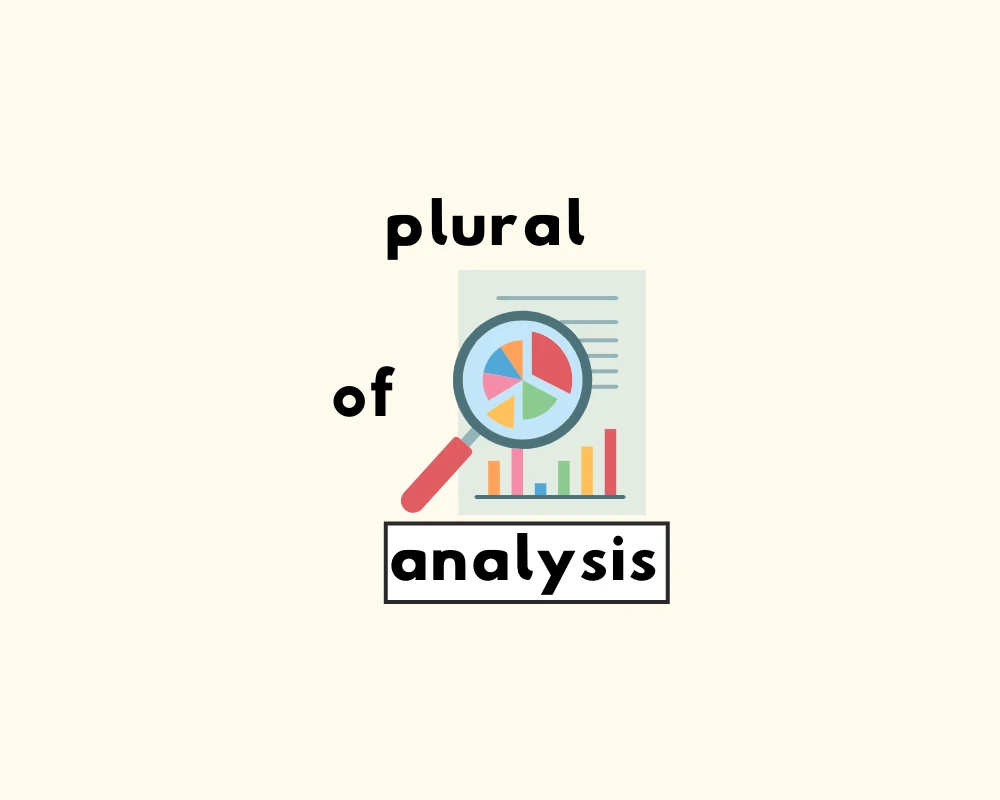Contents
Toggle
What’s the plural of “analysis”?
The word analysis, which is a “detailed study or examination of something in order to understand more about it; the result of the study”; has analyses as its plural form.
- Analysis is the singular noun form.
- The plural of analysis is analyses (pronounced analy-seaze).
Forms of the word analysis
- Analyze (or analyse in UK English) is the verb form of analysis.
- Analytic and analytical are its adjective forms.

Analysis is an irregular plural noun form in English—which is likely the reason why it’s often confused in writing. Analysis plural is analyses, and this is peculiar for us English language speakers and learners to comprehend.
Most plural nouns in English end in -s or -es. Nouns that end with an –s/-es are regular nouns, and they’re simple to form: just add the s! For example, dog plural is dogs, cat/cats, book/books and table/tables. All other plural noun endings are irregular.
Words that end in -sis
The thing about the word analysis is that it does end in plural; –es, i.e., analyses. Why then, is analyses considered irregular when it adheres to the norm and uses the -es as a plural noun? Most nouns one attaches an -s or -es to convert the noun to from singular to its plural form. Analyses works different: the -es suffix is not simply added or glued to the tail end of the word; rather, the -es replaces the suffix of its singular noun form (the -is,) and so effectively changes the spelling (and pronunciation) of the word.
Still, analysis/analyses are not alone: diagnosis, crisis, synopsis, oasis, synthesis, thesis, and nemesis all end in -sis as singular nouns. Each similarly mimics the same plural form; i.e., substitutes the -sis with -ses: diagnoses, crises, oases, syntheses, theses, nemeses, . (bases, hypotheses, paralyses, axes the Greek nouns go on).
| singular | plural |
| crisis | crises |
| diagnosis | diagnoses |
| oasis | oases |
| synopsis | synopses |
| thesis | theses |
Apart from being irregular plural nouns, these words all have another thing in common: they’re all Greek. Greek occupies roughly 5% of the English language. Most English words come from the Germanic languages, which includes Dutch; German, Old Norse; Old Frisian, and a few others.
Words like diagnoses, crisis, analysis and the like have all conserved their original Greek form in both the singular and plural forms. That’s pretty incredible, and means these words have endured through time since the Ancient Greece—and that we can all speak a little Greek!
“Analysis”, used in context
1. She gave a thorough analysis of the main character’s motives.
2. That’s not a bad analysis of the situation.
3. Oregon ranked fifth worst for reading loss in the analysis and eighth worst in math, the researchers concluded. (oregonlive, 28 Oct. 2022)
4. As a result, only the city should determine where the statue would be moved, the judge explained in the court order analysis. (Simrin Singh, CBS News, 27 Oct. 2022)
5. The scale of the disruption to American education is evident in a district-by-district analysis of test scores. (Los Angeles Times, 28 Oct. 2022)
“Analyses”, used in sentences
1. The lab’s analyses of the compound revealed the key element to be potassium.
2. After several analyses of the blood sample, the coroner was able to identify the toxin that killed the wealthy widow.
3. During analyses of future weather patterns, a meteorological team has detected climate changes that may produce a category five hurricane.
4. The factory owner made several budget analyses to decide which departments could be reduced in size.
5. Because the analyses were not performed in a sterile environment, the results of the chemical breakdowns were tainted.
Synonyms of analysis
- inquiry
- inquiry
- investigation
- search
- study
- test
- assessment
- evaluation
- dissection
- examination
Read about other topics
Sources
- Wordsinasentence.com, analyses.
- Merriam-webster.com, analysis.
- Wikipedia, Noah Webster.
- Merriam-webster, analysis.
- Etymology of analysis.










